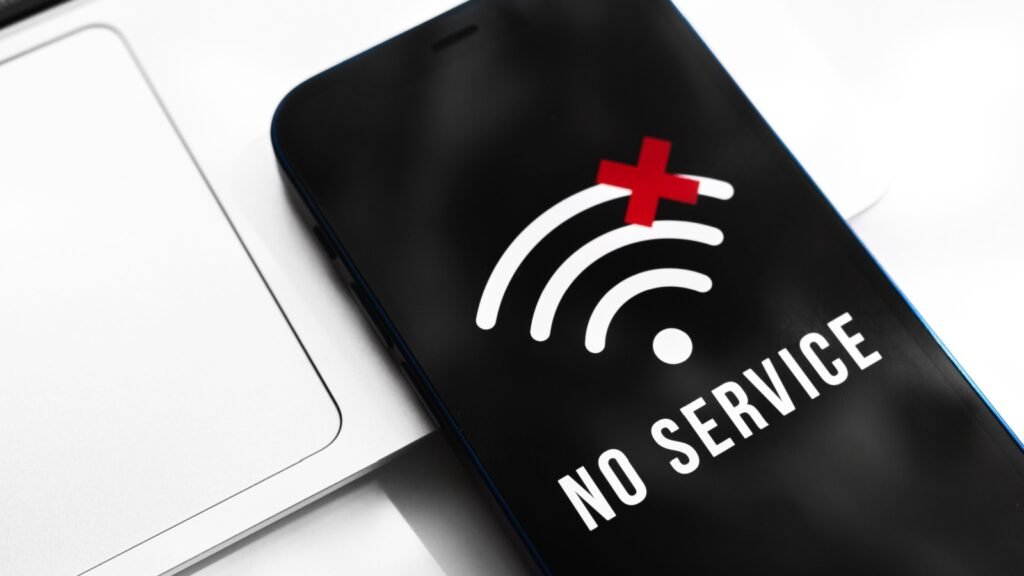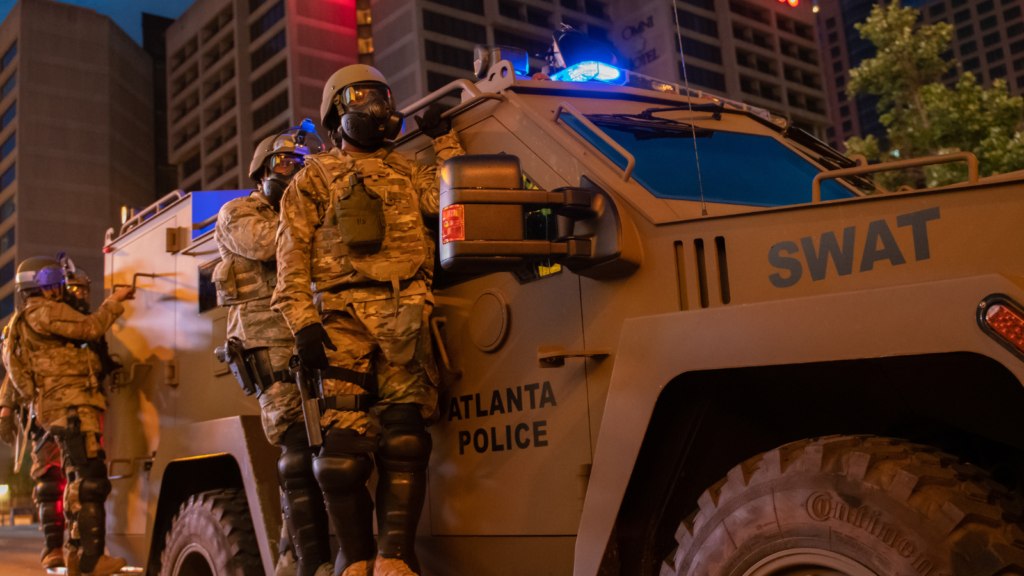When people think of martial law, their minds usually go to military presence, curfews, and the immediate suspension of everyday freedoms. But there’s much more to it than that—things people often don’t consider but should. As a prepper, it’s important to think beyond the obvious and anticipate the hidden dangers that can arise during such a situation. A martial law scenario could easily escalate in ways that catch many off guard. Being aware of these overlooked threats is key to survival and protecting those you care about.
Here are 20 threats that often fly under the radar in a martial law scenario—things that, if unprepared for, could quickly spell disaster.
1. Breakdown of Communication Networks

In a martial law scenario, authorities often control or shut down communication channels. Cell towers and internet services could be limited, leaving you with no way to reach family or receive crucial updates. This lack of reliable communication could leave you blind to critical changes in your area, making it harder to stay safe.
2. Inability to Access Personal Funds

Banks and ATMs might be frozen or monitored, making it difficult to withdraw or use your money. Without access to your savings, you could find yourself without resources to buy food, water, or fuel. It’s important to think about alternative ways to store and use wealth, such as keeping cash or bartering goods.
3. Confiscation of Food Supplies

The government may confiscate food stores or ration supplies, meaning your carefully stocked pantry could be seized. During martial law, the authorities might claim control over resources for “the greater good,” which could leave you scrambling for alternatives if you don’t plan for hidden caches or other means to secure your food supply.
4. Transportation Restrictions

Martial law often comes with strict travel bans, curfews, and roadblocks. You could lose the ability to move freely, making evacuation or accessing resources nearly impossible. Fuel supplies might also be rationed or cut off, leaving you stranded if you don’t have backup plans or alternative routes.
5. Increase in False Information

In chaotic times, rumors and false information can spread like wildfire. Disinformation campaigns—whether deliberate or accidental—can cause panic, leading people to make dangerous decisions. It’s critical to have trusted sources of information and ways to verify what you hear.
6. Medical Care Shortages

Hospitals and clinics might become overwhelmed or inaccessible due to security measures. Martial law could prioritize military and government needs, meaning civilians are left without access to life-saving medical care. It’s wise to have a first-aid kit, essential medications, and some basic medical training to handle emergencies on your own.
7. Confiscation of Firearms

Firearms, which many consider essential for self-defense, could be confiscated by authorities under martial law. In some cases, the government might disarm citizens to reduce threats of insurrection. This leaves you vulnerable to looters, criminals, or other dangers if you don’t have alternative self-defense measures.
8. Forced Relocation

Martial law could lead to forced evacuations, either for “safety” or military purposes. Entire neighborhoods could be cleared out, separating families and leaving your property vulnerable. Having a bug-out plan is critical to ensure you don’t get caught in a forced relocation without a safe destination.
9. Strain on Mental Health

The constant fear, uncertainty, and restrictions can take a heavy toll on your mental health. Martial law can feel like an ongoing state of emergency, with heightened stress causing anxiety, depression, or even conflict among family members. Having ways to manage stress and staying mentally resilient is as important as physical preparation.
10. Breakdown of Law and Order

While martial law is supposed to restore order, it can actually lead to the opposite in some areas. Local law enforcement might be replaced by military forces unfamiliar with the community, or even by mercenaries. This can lead to abuses of power, chaos, or a breakdown in what little law remains.
11. Black Market Emergence

With resources scarce and government control tight, black markets are likely to emerge. While this can offer alternative ways to obtain goods, it also comes with risks like being exploited or exposed to dangerous individuals. Navigating the black market can be treacherous if you’re not prepared for its existence.
12. Increased Surveillance

Authorities may ramp up surveillance, monitoring everything from your movements to your communications. Civil liberties like privacy could vanish overnight. Knowing how to limit your digital footprint and avoid drawing attention is essential in maintaining your freedom under such conditions.
13. Disruption of Basic Services

Garbage collection, clean water supplies, and electricity could be disrupted under martial law. With infrastructure damaged or neglected, basic sanitation becomes a challenge, and things like waste disposal could pose serious health risks. Preparing for off-grid living is crucial to avoid these threats.
14. Lack of Trust in Neighbors

Under the pressures of martial law, trust can erode quickly, even among neighbors. People who once helped each other might turn to theft or report you to authorities in exchange for rewards. Knowing who you can trust—or not—during these times is vital for your safety.
15. Exploitation of Civilians

History shows that martial law can lead to civilian exploitation. People may be forced into labor or compelled to hand over their assets, and there could be little legal recourse. Understanding your rights—or the lack of them—is critical to protecting yourself from exploitation.
16. Civilian Militias and Unrest

In the absence of reliable law enforcement, civilian militias might form. While some of these groups could offer protection, others may become lawless or act as aggressive vigilantes. The unpredictability of these groups makes them a potential danger in a martial law scenario.
17. Spread of Disease

With disrupted services and crowded shelters or camps, diseases can spread rapidly. Limited access to clean water, sanitation, and healthcare can turn minor illnesses into deadly outbreaks. Preparing with sanitation supplies and staying vigilant about hygiene could be lifesaving.
18. Food and Water Contamination

Water sources and food supplies could easily be contaminated due to lack of proper infrastructure maintenance or sabotage. In martial law, people may be forced to use unclean resources out of desperation. Having purification methods and knowledge of safe food sources can help you avoid serious health risks.
19. Psychological Warfare

Martial law regimes sometimes use fear as a tool, manipulating the population through psychological warfare tactics. This could include curfews, loudspeakers, propaganda, or other forms of intimidation meant to keep people compliant. Staying mentally strong and recognizing when you’re being manipulated is key to resisting this.
20. Long-Term Displacement

Martial law could last far longer than anyone expects. Temporary measures often become indefinite, and being displaced from your home or cut off from essential services could stretch for months or even years. Building a plan for long-term survival, not just the short-term, will help you ride out the storm.

